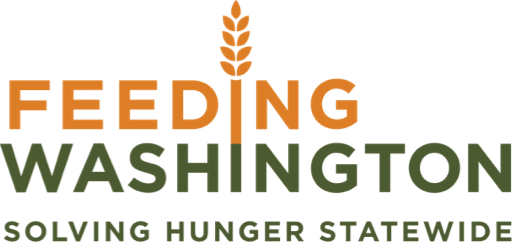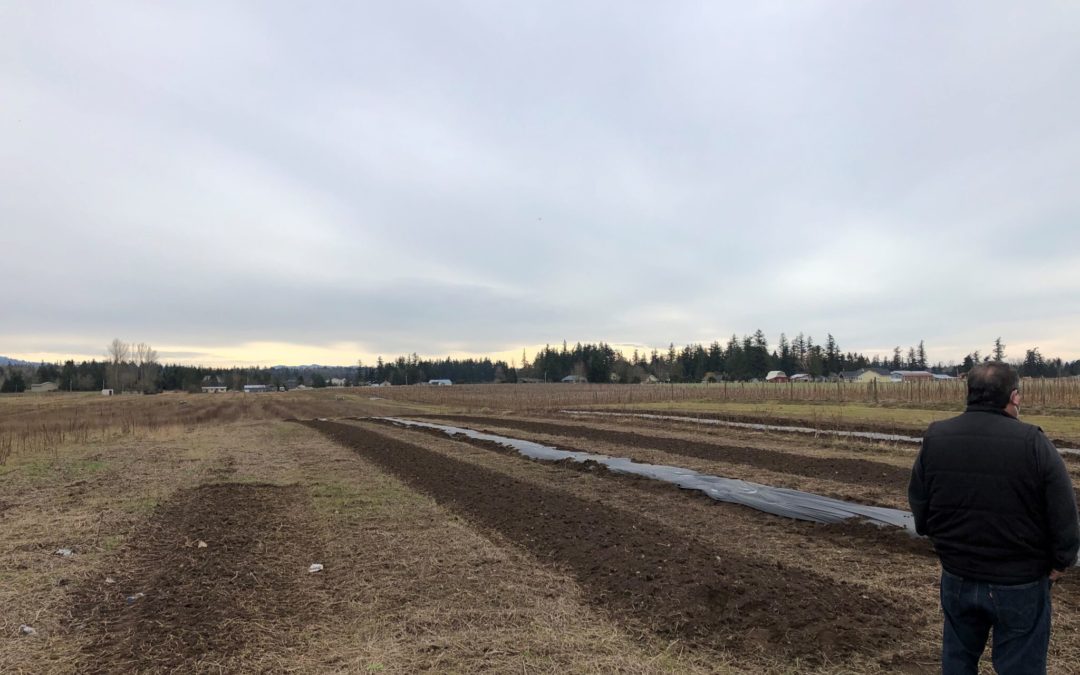From the Food Lifeline blog:
As we work to Root Out Hunger, we are consistently reminded that poverty and systemic oppression are the main two barriers for people experiencing hunger. We are committed to feeding people in the short-term, so they are able to meet their immediate food needs, but at the same time it is necessary to end hunger tomorrow. We must work with communities to identify sustainable opportunities that will promote economic growth and identify solutions that will end the cycle of poverty and hunger.
Eber Rivera, Food Lifeline’s Food Access Specialist, says: “Economic mobility is one of the key factors that will end hunger tomorrow.” Eber is currently identifying organizations invested in economic mobility work to better understand existing community lead solutions. Cooperativa Tierra Y Libertad in Everson, Wash. is an amazing example of a project that is owned and led by the farmworkers themselves. The long-term goal is not only to have a running farm, but for this farm to be a source of income for a number of families. The families will live in houses built on the farm, maintain the farm, and harvest the fruit of their labor. Eber plans to take learnings like this to build partnerships, which will increase economic mobility and food security.
“I want to focus on the second part of our mission, to end hunger. Making it a priority means putting the biggest need of the community first. We know hunger does not have to happen. When we invest in challenging the root causes of hunger, people can move from positions of vulnerability to opportunity,” says Eber.
Spanish:
Mientras trabajamos para erradicar el hambre, se nos recuerda constantemente que la pobreza y la opresión sistémica son las dos barreras principales para las personas que padecen hambre. Estamos comprometidos con alimentar a las personas a corto plazo para que puedan satisfacer sus necesidades alimentarias inmediatas, pero al mismo tiempo es necesario acabar con el hambre del mañana. Debemos trabajar con las comunidades para identificar oportunidades sostenibles que promoverán el crecimiento económico e identificar soluciones que pondrán fin al ciclo de pobreza y hambre.
Eber Rivera, nuestro especialista en acceso de alimentos, dice: “La movilidad económica es uno de los factores clave que acabarán con el hambre del mañana”. Actualmente, Eber está identificando organizaciones que invierten en el trabajo de movilidad económica para comprender mejor las soluciones de liderazgo comunitario existentes. La Cooperativa Tierra Y Libertad en Everson, WA es un ejemplo asombroso de un proyecto que pertenece y es liderado por los mismos trabajadores agrícolas. El objetivo a largo plazo no es solo tener una granja en funcionamiento, sino que esta granja sea una fuente de ingresos para varias familias. Las familias vivirán en casas construidas en la finca, mantendrán la finca y cosecharán el fruto de su trabajo. Eber planea tomar aprendizajes como este para construir asociaciones que aumentarán la movilidad económica y la seguridad alimentaria.
“Quiero concentrarme en la segunda parte de nuestra misión, acabar con el hambre. Convertirlo en una prioridad significa poner en primer lugar la mayor necesidad de la comunidad. Sabemos que el hambre no tiene por qué suceder. Cuando invertimos en desafiar las causas fundamentales del hambre, las personas pueden pasar de posiciones de vulnerabilidad a oportunidades ”, dice Eber.

